The Good Shepherd
This post is adapted from a homily I gave on Sunday November 24th, 2013. The readings for that day were:
Jeremiah 23:1-6
Luke 1: 68-79
Luke 23: 32-43
Today is the last Sunday before Advent, and for nearly 100 years has been called “Christ the King” Sunday. So the readings today concern kings. Some of them are kings in the way we tend to think of earthly kings- kings who are in it for themselves, for power and for riches. Jeremiah talks about some of those kings, who he also calls “shepherds” who are so far off the path themselves that they lead their people astray.
Jeremiah also talks about the good kings, the good shepherds, that can bring their people back. He is talking partly about the good kings who advocated on behalf of those who were poor, and who strove for justice. However he is also talking about God as a Good King, and Good Shepherd, who will gather the people back together, bring them back into the fold.
This ultimate Good Shepherd will also raise up other good shepherds who will do what all good shepherds do – take care of and protect the flock, keep them on the path, keep the predators away. And indeed, through the ages God has worked to send good shepherds to lead the people, to be with them and to lead them to righteousness. Moses is one of them, as is Jeremiah. And of course we have Jesus.
Richard Swanson says what is remarkable about the Christian tradition is that God promises to come to be with us. In other religions it’s about being raised up to where God lives, but in Christianity (and in Judaism) God comes to meet us where we are. Not only that, God comes to be with us in a very real way – as “Emmanuel, “ which means “God is with us.” The God of Christianity is a very real and present God, ever faithful to us.
We have two readings from Luke. The first is the song of Zechariah, which he sings after the birth of his son. We can see Zechariah’s song as an affirmation of God’s faithfulness to us. Zechariah’s song is about another of those good shepherds God sent to be with us – his son who will be John the Baptist. His son came to announce and prepare the way for the Good Shepherd that is Jesus.
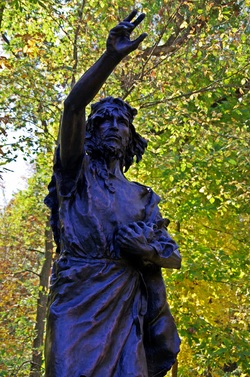
Then in the second Gospel reading, Jesus teaches us how to die a good death even in the worst of circumstances. Crucifixion was a terrible punishment meant to crush the humanity out of those crucified and to crush the spirits of those who looked on. It was state-sponsored terrorism. I suppose most of the time it worked. But not this time, at least not with everyone who was there.
You may notice that the reading says, “and the people stood by, watching.” Here Luke is talking about the faithful among Jesus’ followers. “The people” are his family and friends who have come to bear witness to his suffering and to the injustice of it. They are faithful and they surround him. They do not abandon him. In doing this they hold on to their humanity. They have learned from the life of and example of Jesus, to remain faithful and to stand in witness.

Jesus the Good Shepherd leads us by teaching, and by living a life we can only hope to imitate. Jesus the Good Shepherd also leads us by teaching us how to die with extraordinary goodness. He shows us how to remain kind in the midst of suffering, and to be forgiving towards those who are cruel towards us.
As a hospital chaplain, every day I witness different ways of coping with suffering, illness, pain, and even death. Sad to say, sometimes I witness the “ordinary” behaviors of abusing nurses and their aids, complaining about and to their doctors, even being snippy and picking fights with family members and other loved ones. We see family members sometimes picking fights with patients.
But most of the time I see people who are in pain acting kindly even towards our staff, towards their own family and friends, and even toward other patients here. I witness the extraordinary goodness of people who are dying recognizing their own faults and asking for forgiveness. I see the extraordinary goodness of suffering people who forgive those in life who have cause them suffering. I see the extraordinary goodness of people who hold onto their humanity until the end – facing death bravely and even serenely. As difficult as it is to witness such a person dying, it is extraordinarily uplifting to witness this kindness and their courage.
And I see the extraordinary goodness staff so often show to patients – being patient and kind even with those who are difficult, forgiving those who ask forgiveness, and those staff who ask forgiveness for those moments when they might snap back at a patient or family member. I have witnessed the extraordinary goodness of nurses who will sit with people who are facing death alone- without anyone else to support them – standing as the faithful looking on with kindness and compassion.
On this day we recognize a different kind of king, a Good Shepherd who taught us how to live and how to die. Let us renew our resolve to follow that example, to live with risk and kindness, to die with compassion and forgiveness.
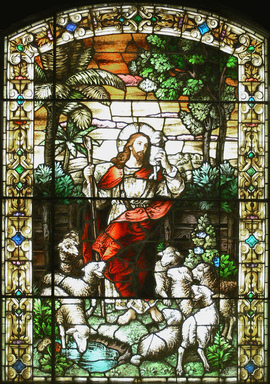
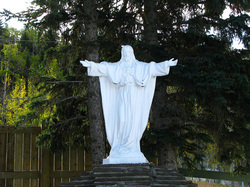


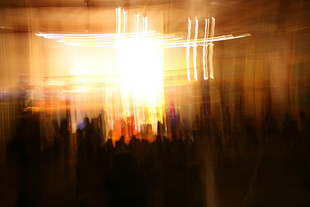


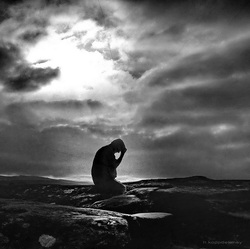



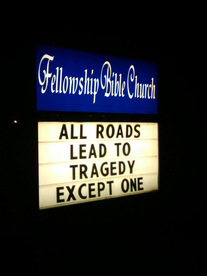











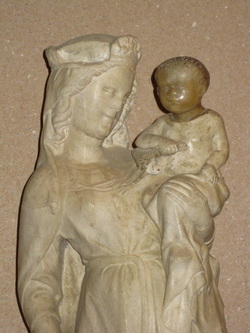

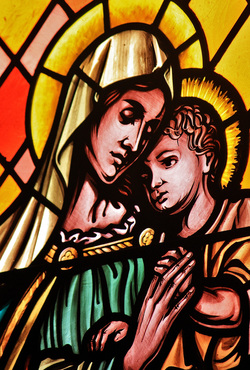
 RSS Feed
RSS Feed